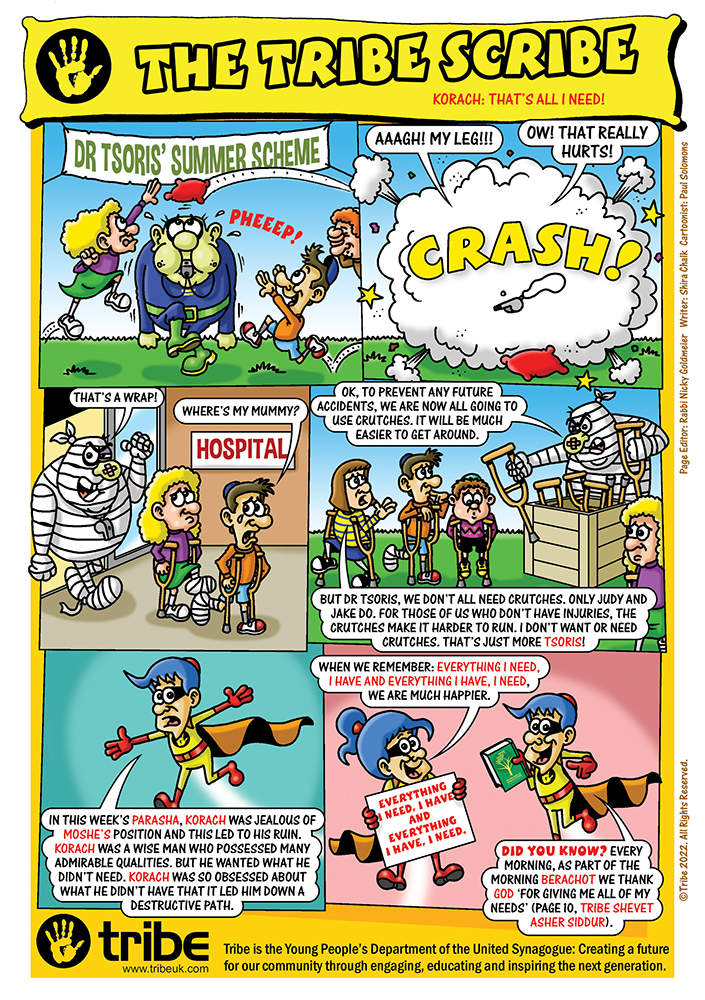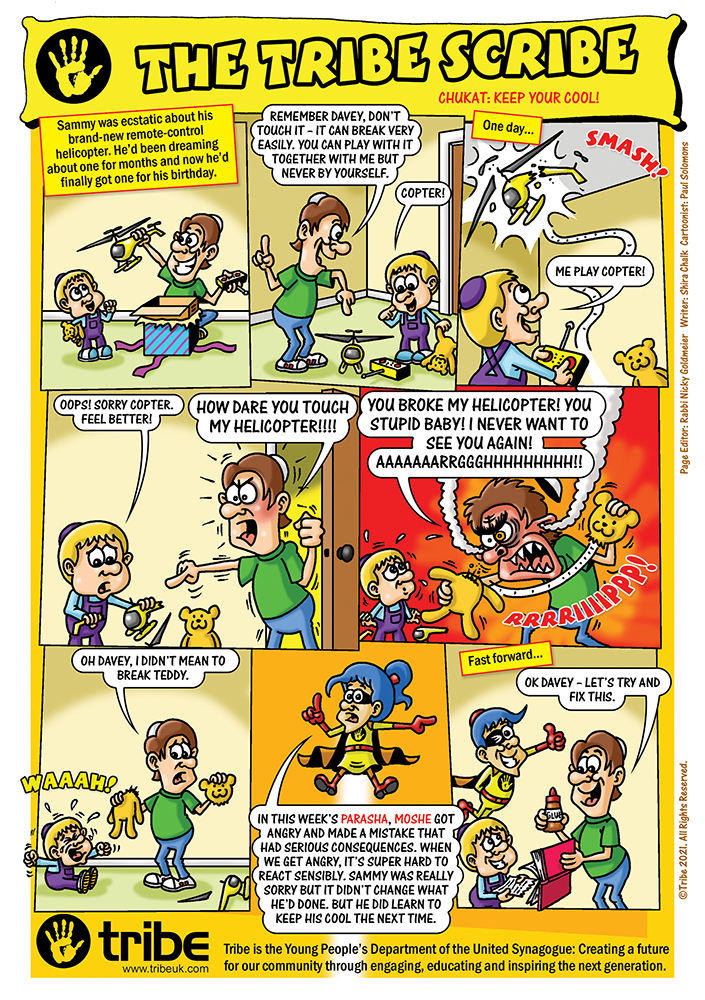Bonjour / Hello [nickname_else_first_name],
Table of contents
1) Perashat Hashavoua - Rabbi Eli Mansour
2) Halakhat Hashavoua (Halakhot related to day to day life) By Hazzan David Azerad -
Amidah in Any language - Peninei Halacha
3) Holy Jokes!
4) For KIDS

This Week's Parasha Insight with Rabbi Eli Mansour
Parashat Korah: Tammuz and Jealousy
Our Sages teach that the divine Name of "Havaya," which is spelled with the letters "Yod," "Heh," "Vav" and "Heh," is the source of all blessing in the world. These four letters can be arranged in twelve different configurations, corresponding to the twelve months of the year, and each month is influenced by one configuration. The month of Nissan, for example, is under the influence of the straightforward spelling – "Yod," "Heh," "Vav" and "Heh." Nissan is the month of miracles, when Hashem’s presence is clear and obvious, and thus it is represented by the configuration that expresses the divine Name in the clearest, most straightforward manner. This spelling is alluded to in the verse in Tehillim (96:11), "Yismehu Ha’shamayim Ve’tagel Ha’aretz" ("The heavens shall rejoice and the earth shall exult"), as the first letters of these words are "Yod," "Heh," "Vav" and "Heh."
At the opposite end of the spectrum, the month of Tammuz – which we began this past week – corresponds to the reverse spelling of "Havaya" – "Heh," "Vav," "Heh" and "Yod." This is the month of crisis and calamity, when Hashem is hidden and concealed, when we are subjected to harsh judgment, and thus it is represented by the reverse of "Havaya." Interestingly enough, the verse that alludes to this month is a verse in Megillat Ester (5:13), in which Haman tells his family, "Ve’chol Zeh Enenu Shoveh Li" – "All this is worth nothing to me." The final letters of the words "Zeh Enenu Shoveh Li" are "Heh," "Vav," "Heh" and "Yod" – the configuration by which the month of Tammuz is influenced. In this verse, Haman expresses his frustration over the fact that one man – Mordechai – refused to bow to him. Although Haman was the second-in-command in the largest empire in the world, and enjoyed all the wealth, fame and prestige anyone could possibly hope for, he was not satisfied. He was infuriated by the fact that a single man refused to bow, to the point where everything he had was "worth nothing." As we know, this insatiable desire for honor, and Haman’s overpowering jealousy, led to his swift downfall.
Our obligation during the month of Tammuz, then, is to reverse this quality of Haman, and thereby reverse the spelling of "Havaya," transforming Tammuz into Nissan – changing the month of calamity into a month of overt miracles. During Tammuz, we ought to be focusing our efforts on avoiding envy and self-aggrandizement. Appropriately, we spend much of this month thinking about and mourning for the Bet Ha’mikdash, which was built to bring honor to Hashem. This is the time to remind ourselves that our goal and aspiration must be to bring honor and glory to G-d, and not to ourselves.
Not at all coincidentally, during this month we read Parashat Korah, which tells of the destructive power of jealousy. Korah, like, Haman, enjoyed prestige, but was dissatisfied and envious. Our Sages explain that Korah was among the Leviyim who transported the Aron in the wilderness – a very coveted and prestigious position – but he felt envious over the fact that his cousin, Elitzafan, was chosen as the leader of his group of Leviyim, a position he felt he deserved. These feelings of jealousy led him to the insensible decision to revolt against Moshe Rabbenu, a decision which cost him his life.
Let us learn from this story about the dangers of jealousy, and always remember that our goal as Jews is to work to bring honor to Hashem. If we conduct our lives with this objective in mind, we will avoid jealousy and resentment, and will focus our energies on doing what is right, and not on what will bring us fame.

Halachot this week are selected and Translated by Hazzan David Azerad
Amida in any language - peninei halacha
One may recite the Amida in any language (Sota 32a). However, it is best to pray in Hebrew, for that is the language in which the Men of the Great Assembly composed the prayers. Furthermore, Hebrew is the holy tongue and is the language with which the world was created.
An additional advantage to praying in Hebrew, untrue of any other language, is that one may pray in Hebrew even if they don't understand it. In any other language, only those who understand what they are saying fulfill their obligation.
In practice, one who does not understand Hebrew may choose the language in which to pray. On one hand, there is an advantage to praying in a language that one understands, for it enables one to have more kavana. On the other hand, if one prays in Hebrew, they pray in the holy tongue (Lashon Hakodesh) ( Kaf Ha-ĥayim 16).
Bevirkat Shabbat Shalom Umevorach
David Azerad
3) HOLY JoKeS!!
Selection of funny snippets, loosely related to this weeks parashah or current events, to brighten your day



4) FOR KIDS
Click on the image to open the youtube video


















